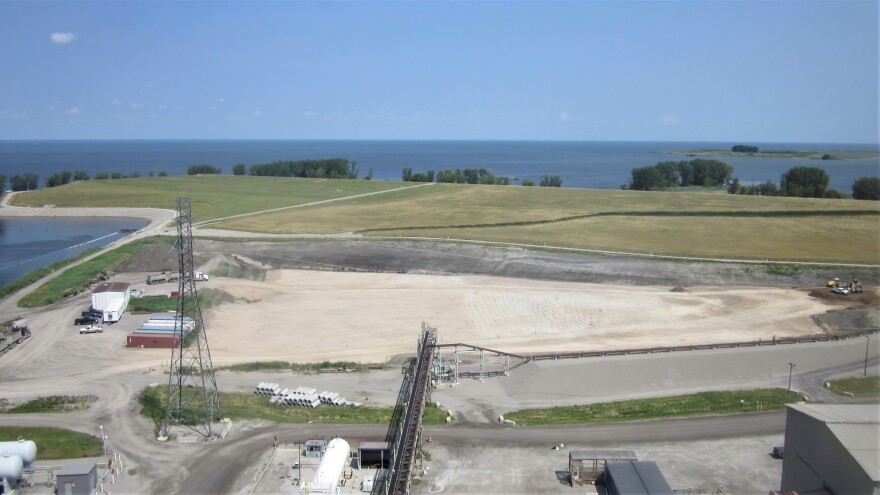Electric utilities are gradually phasing out coal-burning power plants in Michigan. But environmental groups are warning that some of those power plants are leaving behind a poisonous legacy.
Some municipal coal-burning power plants have been closed and even demolished. Consumers Energy plans to stop using coal by 2025. And just last week DTE Energy proposed a plan that would see the utility shutting down its last coal-burning plant by 2035.
“That's absolutely wonderful for the environment. It'll end the burning of coal and the emission of global warming gases, but that does nothing to correct the contamination that has already occurred on site,” said Lisa Evans, senior attorney with the environmental group Earthjustice, during an online news conference.
She’s a co-author of a report titled Poisonous Cover-up: The Widespread Failure of the Power Industry to Clean Up Coal Ash Dumps. The report states that the vast majority of power companies have failed to follow an Environmental Protection Agency rule put in place in 2015.
Abel Russ, senior attorney at the Environmental Integrity Project and co-author of the report, explained that coal ash is what’s left over after burning coal, and it’s often stored at the power plant which is typically built right next to a body of water.
“The stuff is full of toxic chemicals. There are at least six neurotoxins in coal ash, like lithium. There are five or six known or suspected carcinogens, things like arsenic. And there are a bunch of pollutants that are toxic to aquatic life as well. And this stuff frequently migrates into streams and lakes.”

The report ranks 292 power plants by the severity of the coal ash pollution. Thirteen of the sites listed are in Michigan. (See more from the USEPA here.)
One Michigan site was ranked as the 23rd worst in the nation. The City of Grand Haven’s J.B. Sims municipal power plant site was built on an island in the Grand River near Lake Michigan. Chemicals found in the coal ash there, according to the report, include arsenic at 12 times higher than drinking-water standards, boron at 75 times higher, and lithium at 50 times higher.
In an email, the Michigan Department of Environment, Great Lakes, and Energy told us it’s negotiating a consent order with the City of Grand Haven to address the clean-up of the site. EGLE added, “There is likely to be EPA involvement” because of both state and federal regulations of the coal ash surface impoundments.

Farther down the list, the next four power plant sites of greatest concern in Michigan are owned by Consumers Energy. It has a total of five plants ranked in the study.
“We do have contamination at four of the five sites that you just referenced. And in each of those cases, we've committed to not only completing closures -which in many cases we have- we're also implementing corrective actions,” said J. R. Register, principal engineer with Consumers.
Register said none of the sites is near public water supplies or water intakes in the Great Lakes and no private wells have been contaminated. He said Consumers started “corrective actions” even before the EPA Coal Ash Rule went into effect seven years ago.
Four sites ranked lower on the list are DTE Energy plant sites. The problem site for the company is the now-closed River Rouge Power plant. Usually the ponds where coal ash is stored are lined with clay to prevent contamination of groundwater. There is no clay lining at the River Rouge plant which sits where the Rouge and Detroit rivers join.
“All the other sites have got feet and feet and in some cases, hundreds of feet of natural clay in place to protect the environment, human health, everybody from anything in those impoundments,” said Rob Lee, manager of environmental management and resources for the utility.
When asked whether the coal ash storage pool at River Rouge had contaminated water, Lee said DTE is checking.
“It's near the river, so we can't say with certainty, but it's on the river. And by putting in the ground water collection system, we were preventing any additional risk of anything seeping out of that pond into the river or any anywhere else.”
Other sites that made the list are two power plant sites in Marquette. They were near the bottom of the rankings in the report and EGLE considers them to be in compliance.
One power plant that did not appear on the list, but was mentioned in the report, was the Lansing Board of Water and Light’s Erickson Power Station. As first reported by the City Pulse newspaper, six private wells within a mile of the plant have been found to be contaminated with boron.
The environmental groups proposed several solutions, including:
- Industry must fully comply with the federal Coal Ash Rule.
- There should be greater EPA oversight.
- Enforceable cleanup schedules should be required.
- Older coal ash sites closed before the 2015 rule should not be exempt.
- Drinking water near ash dumps should be tested.
- There should be restrictions on the use of coal ash. It’s been used as a cheap substitute for clean fill in yards and golf courses.
Consumers Energy and DTE Energy are corporate sponsors of Michigan Radio.







